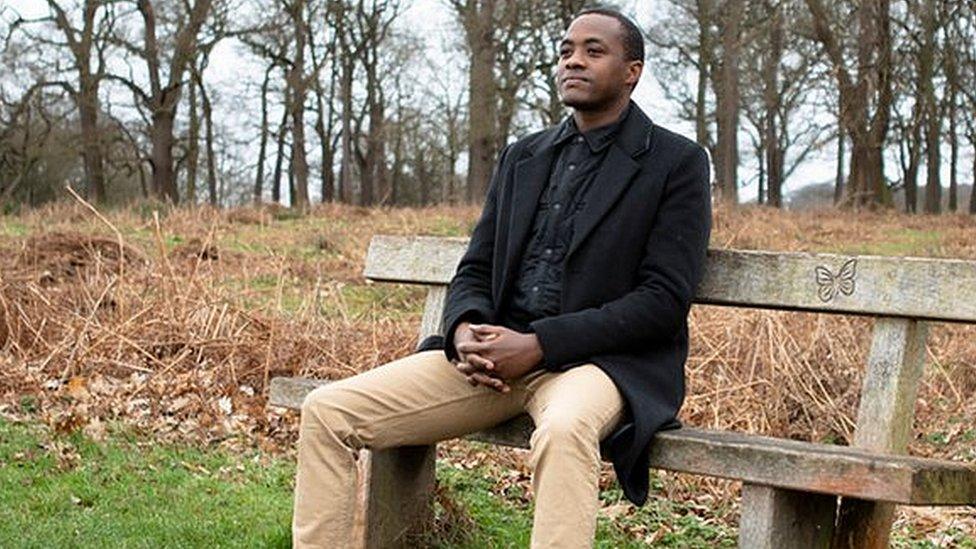Veteran with chronic PTSD 'dropped like nothing'
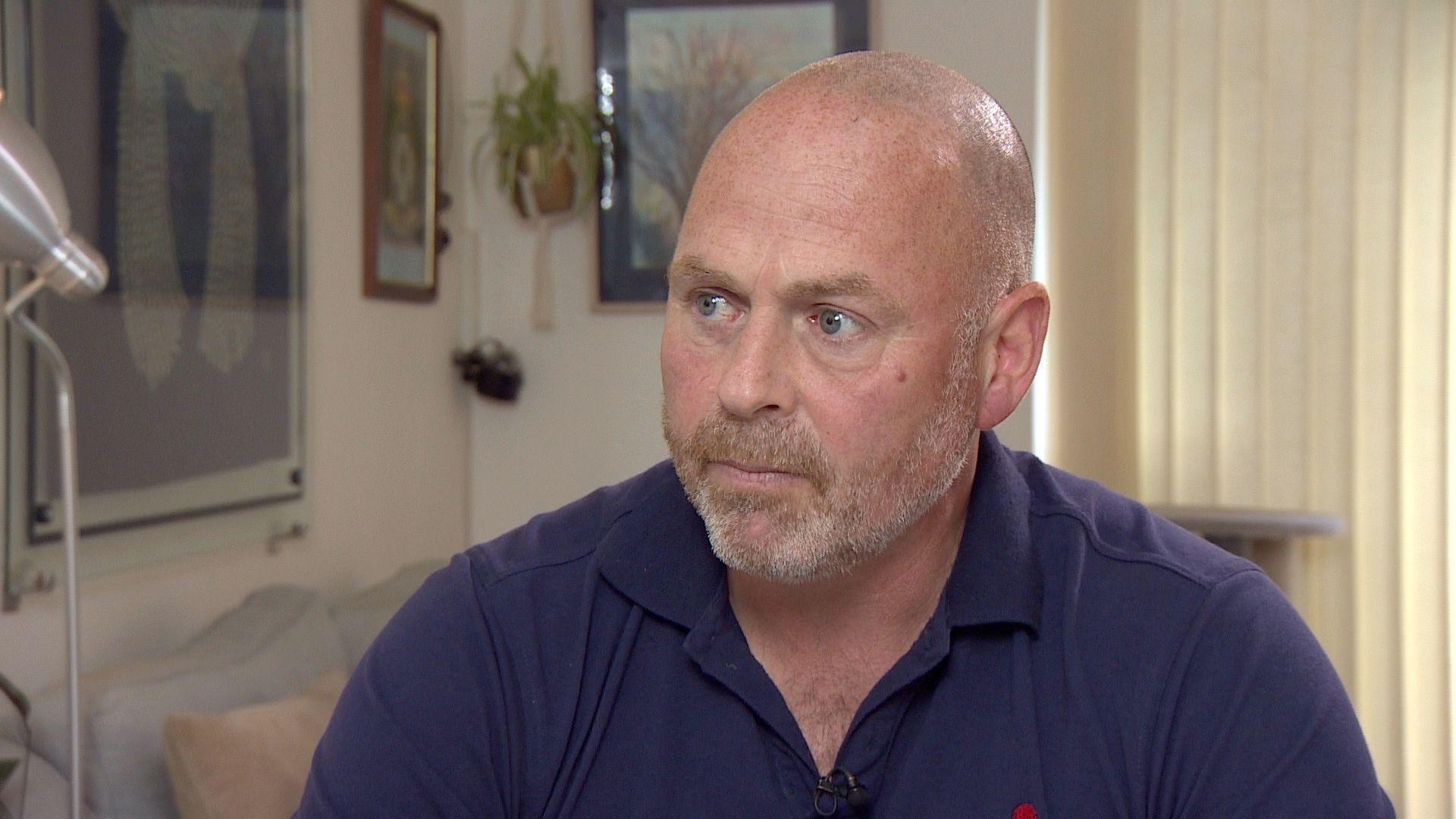
Jim Newman says he is seen as the "the cheerful man" that delivers people's post, but he struggles every day
- Published
An RAF regiment veteran says he feels like he has "been dropped like he's nothing" as he battles to find treatment for his chronic post-traumatic stress disorder (PTSD).
During his forces career, Jim Newman witnessed harrowing scenes when he worked on the ground at the Lockerbie crash site, both Gulf Wars, and Afghanistan.
Now working as a postman in Stroud, Gloucestershire, Mr Newman wants to ensure the NHS can support veterans' mental health.
A Ministry of Defence spokesperson said they were "committed" to supporting personnel "as they transition into civilian life".
Despite his struggles, Mr Newman, now a veteran of 14 years, is still "immensely proud" of serving his country.
He joined the RAF at 17 and was left with images "permanently etched on his mind" after being at ground zero of the Lockerbie air disaster.
The explosion on board a Boeing 747 on 21 December 1988 left 270 people dead, making it the deadliest terrorist attack on British soil.
'Crying in the shower'
Shortly after, he found himself in the midst of Gulf War One, and was one of the first on the scene as an Iraqi Scud missile hit an American military warehouse in Dhahran, Saudi Arabia.
"People screaming, people coming up to you, people lying on the ground, dead," Mr Newman said, recounting what he saw.
"I remember being sent back to where I was [staying]... and all I remember is just crying in the shower, and just watching the bottom of the shower fill with blood and dirt.
"I scrubbed myself so much just to clear it, just to get it out of me.
"It was just a horrible feeling not being able to cleanse myself but the cleansing wasn't physical, it was mental," he said.
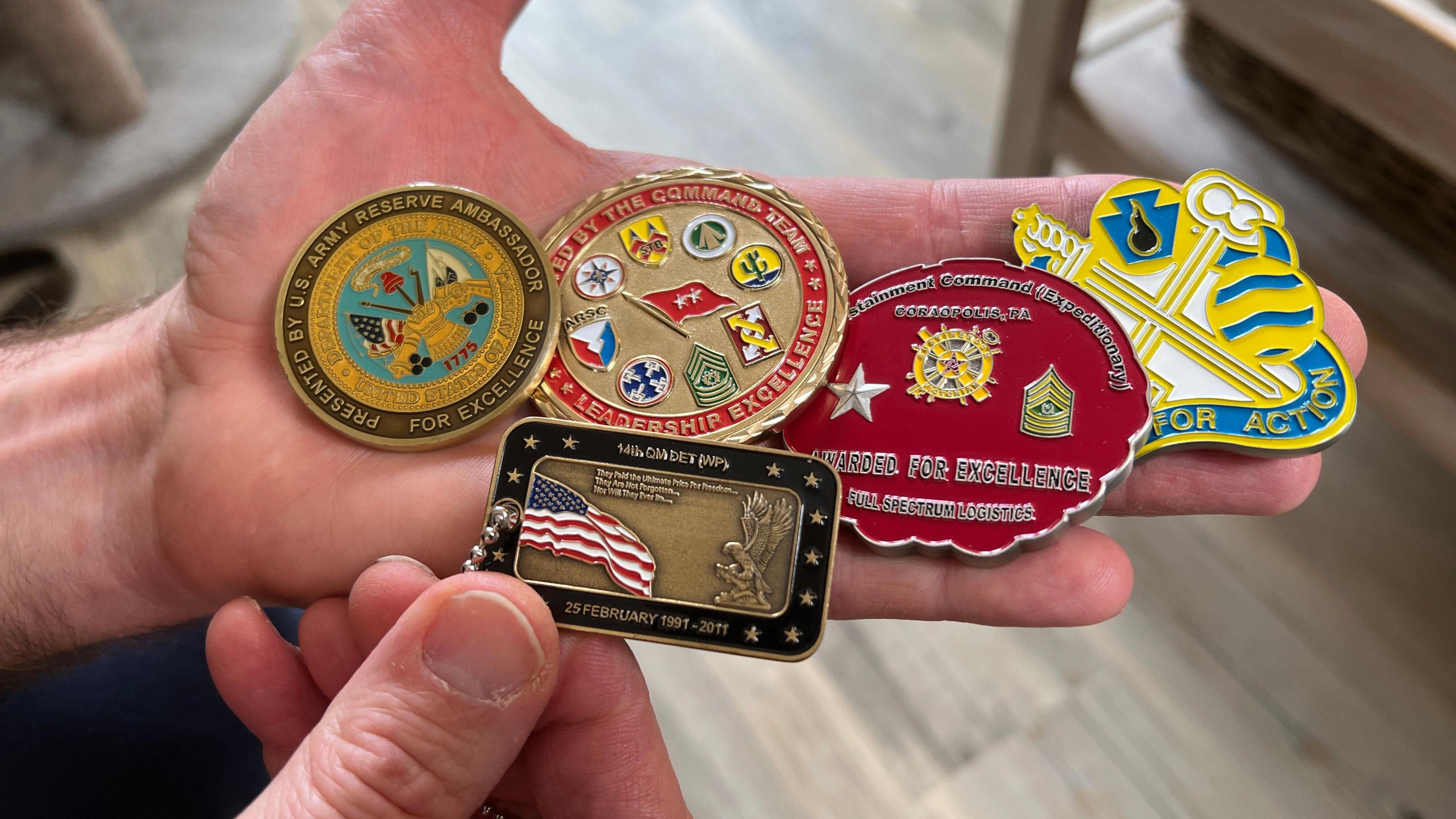
Mr Newman said the sights he saw during his time in the forces had a "profound effect" on him
Mr Newman was eventually diagnosed with chronic PTSD. He now works as a postman in Stroud and, despite appearances, struggles every day.
"It's a silent anger which is just manifesting and ruminating in my mind the whole time," Mr Newman said.
"It's like a black hole. It will not subside; if anything, it actually gets stronger as you get older.
"To people who see you around, you are the cheerful man that comes to our doors.
"Somebody will say, 'Hi, Jim, how are you?' and I'll put the smile on and I'll go, 'Yeah, everything's fine'.
"It's never fine," he admitted.
If you, or someone you know, have been affected by mental health issues, BBC Action Line has details of organisations that may be able to help.
'Dropped like you're nothing'
Mr Newman received help from Combat Stress, a charity that helps veterans with their mental health, but, he says, they cannot keep up with demand.
With the charity only able to offer limited support, Mr Newman turned to his local NHS mental health team, but was told they could not deal with his level of trauma.
Mr Newman said the reduction in funding for specialist organisations needs to be addressed urgently by the government or more veterans will continue to suffer, or even lose their lives.
"You honestly do feel like you've just been dropped like you're nothing," he said.
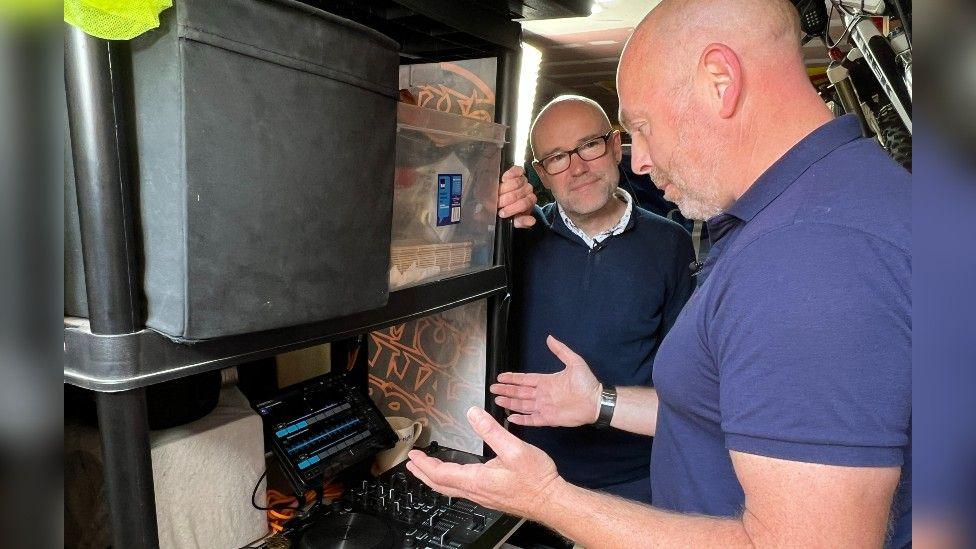
Mr Newman shares music with other veterans online
Through the darkness, Mr Newman has managed to find some light, in the form of music.
He spends hours in his garage creating mixes, which he then shares with other veterans.
"The music always brings me back there... it's a coping strategy to get through those darker moments," he said.
'Very, very fortunate'
Despite his struggles, Mr Newman said he was "immensely proud" of his time in the forces.
"I'm very, very fortunate to have met some amazing men and women within the forces who I now call friends and also brothers and sisters," he said.
"I'll do it all again."
The MoD offers Career Transition Partnership (CTP) and Defence Transition Services (DTS) to support veterans.
"We provide a comprehensive range of support including career guidance, housing and financial advice and facilitating access to health services," an MoD spokesperson added.
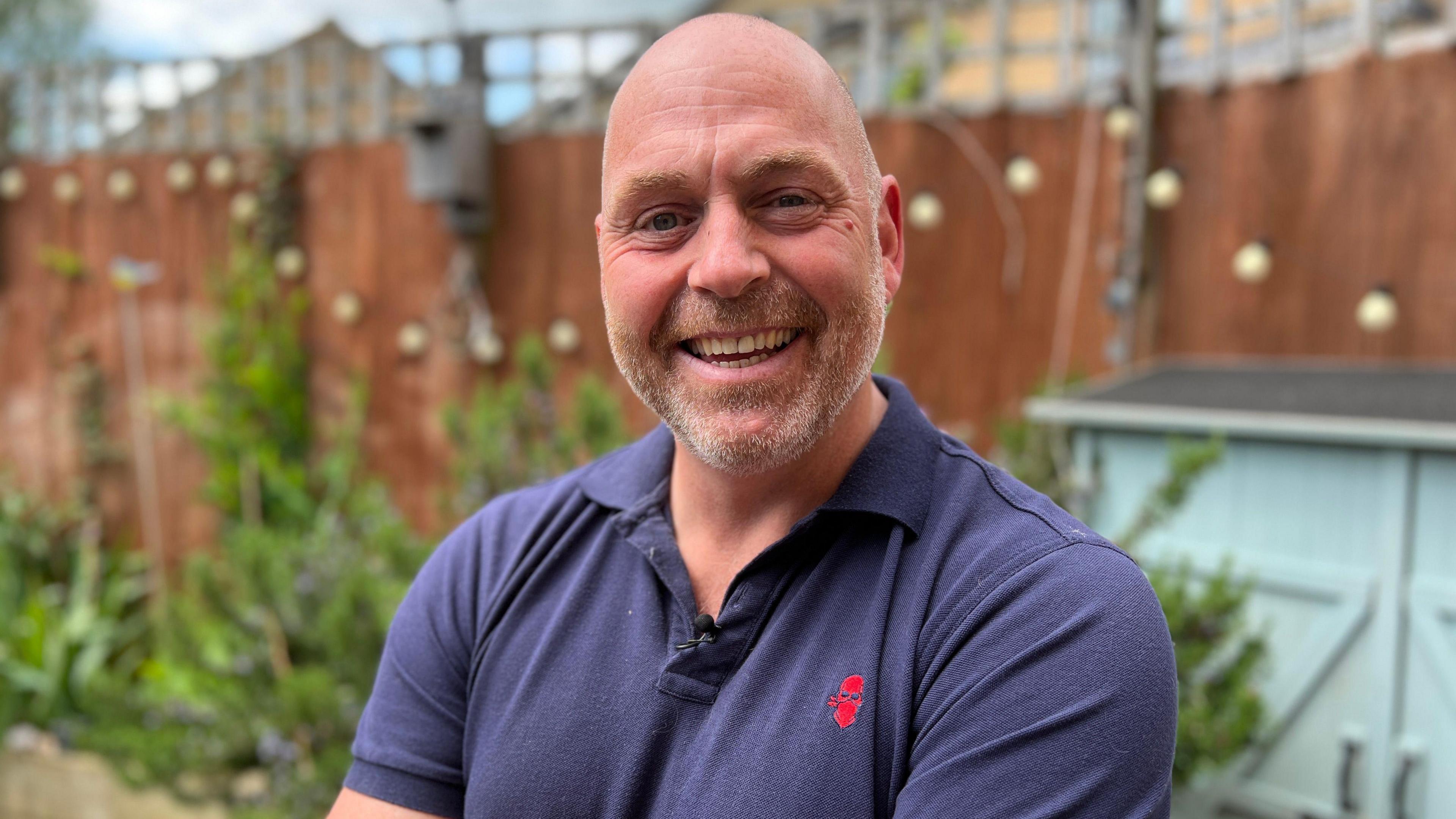
Mr Newman said he was "immensely proud" of his service
A spokesperson for Gloucestershire Health and Care NHS Foundation Trust told the BBC it was unable to comment in any detail on individual cases.
"While we will always do our best to support everyone referred to us, where there are other specialist options available to someone, we will discuss these options and help them make decisions around their ongoing treatment," they said.
"We welcome the fact there is now a new, national service called Op Courage, which leads on working with veterans, reserves and their families and may be more suitable for the particular needs highlighted."
Follow BBC Gloucestershire on Facebook, external, X, external, and Instagram, external. Send your story ideas to us on email or via WhatsApp on 0800 313 4630.
Related topics
- Published21 August 2024
- Published11 April 2024
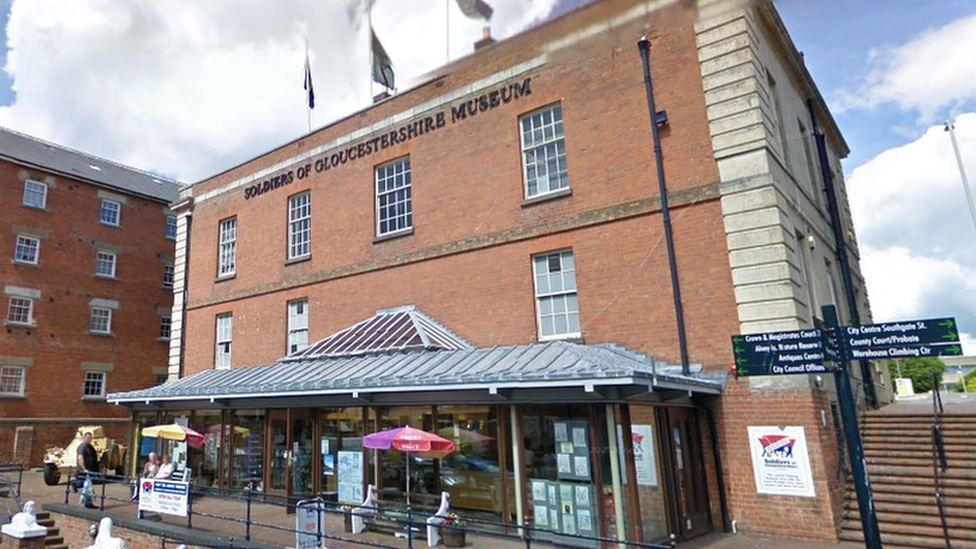
- Published12 January 2024
